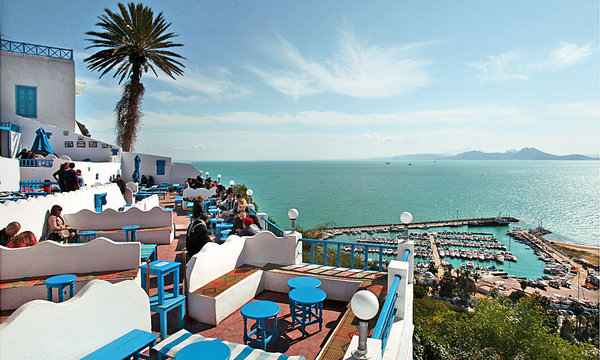Protests in Kasserine, some degenerating into violence. A government-imposed curfew from midnight to 5 am. A massive gun attack on a resort beach in 2014. “Is it safe?”, they all wonder, silently asking why I couldn’t have chosen a normal country in which to study.
I had resigned to France. Female, American, student, has never left the contiguous States, and happens to minor in French? Few would call it a feeling of choice. I wanted the Anthony Bourdain exoticism; Tangiers maybe, or Moscow, or Seoul. But France was safety, swaddled in a warm blanket of familiar Westernization. In France I could survive, probably avoid kidnapping, and maybe even fit in.
I was ravenous for something beyond my binary concept of comfort.
And then Charlie Hebdo happened. And then Paris. The clouded idea that geography could promise safety dissolved. No one could tell me Europe was my safest option. I held a full deck of counters: Charlie Hebdo, Paris, Taken, Taken II, the fact that my father does not have Liam Neeson’s special set of skills. If I couldn’t be perfectly safe anywhere, the arguments for compromise crumbled. As I reopened the quite literal world of possibilities, the overwhelmingly adolescent craving for novelty set in. I was ravenous for something beyond my binary concept of comfort; I wanted something completely unrelated to any experience I had to date. Tunisia, a coastal Arab country with a predominantly Muslim population and birthplace of the Arab Spring, captured my full attention.
It is not war-torn, and it stands in solidarity against terrorism of any sort.
The conversations that followed this decision went exactly as I expected. Is that in the Middle East? Isn’t that a lot for your first international trip? Is it safe? It was obvious that there was something more than the average watching-your-kid-grow-up anxiety nagging at my family. The safety question lingered awkwardly like a question mark at the end of a statement. My inability to reassure them highlighted just how little those around me knew about Tunisia. Tunisia is indeed a different country than Tanzania. It is also not in the Middle East. The capital, Tunis, is a metropolitan area flanked by resorts and tinted with Western influence. It is not war-torn, and it stands in solidarity against terrorism of any sort.
After my arrival I couldn’t be more proud of my choice. I live in a beautifully eclectic apartment with my host mother Annie, a French native who stares at me quizzically when I can’t finish my baguette at breakfast. I take my lunch at a small sandwich shop at which the American ambassador supposedly has his carrot juice every Saturday morning. I study with a group of six other students, all of whom inspire me with their constant search for understanding about a country nonexistent on their peers’ radar screens. We are greeted warmly by everyone we encounter, despite our shaky grasp of Tunsi words. We are the only American program in this country, and we are seven, and we are safe.

